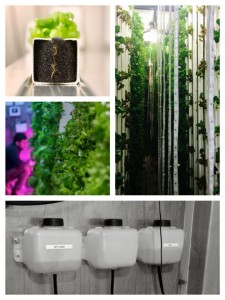At the heart of every great business, from two-man start-ups in the garage to Fortune 500 giants, is one common factor: a great idea. But for many start-ups, that great idea may be all they have. While small businesses provide the opportunity and flexibility for innovation, many of these organizations lack the resources to move beyond the prototype stages. Too many brilliant ideas have been waylaid by simple logistical errors that could be avoided through partnership with an established contract manufacturer—especially one that is well versed in the needs of small businesses.
It was at this crucial juncture, moving from prototype and proposal to market-ready production, that the environmentally-focused Massachusetts start-up Freight Farms stepped up to the plate and hit a home run. By partnering with an established manufacturer like Columbia Tech they were granted access to world class facilities and years of experience—something most small businesses only gain over years of trial and error.
 The Freight Farms model is simple: a repurposed 40-ft freight container is converted into a self-contained, modular environment for growing fresh vegetables in any locale, regardless of climate or available resources. On paper this idea might even look easy, but the challenge the project developers faced was daunting. How would they build containers at a rate that satisfied demand and remained profitable? How would the ‘farm-in-a-box’ be transported to its final destination?
The Freight Farms model is simple: a repurposed 40-ft freight container is converted into a self-contained, modular environment for growing fresh vegetables in any locale, regardless of climate or available resources. On paper this idea might even look easy, but the challenge the project developers faced was daunting. How would they build containers at a rate that satisfied demand and remained profitable? How would the ‘farm-in-a-box’ be transported to its final destination?
While the project founders knew these concerns existed, they were focused on the big picture of creating a sustainable food source that could eventually reduce or eliminate world hunger. An ambitious task, but with these intimidating goals in mind, they turned to Columbia Tech’s expert teams, who helped them standardize production at maximum efficiency. Utilizing a contract manufacturer helped Freight Farms sidestep the delays that accompany building a new production facility, allowing them to move rapidly from concept, to prototype, to market. By selecting a partner that had a strong background in container-based manufacturing, the Freight Farms team could keep their focus on the product and rely on the experience of Columbia Tech to guide them through the sometimes arduous process of turning their great idea into reality.




